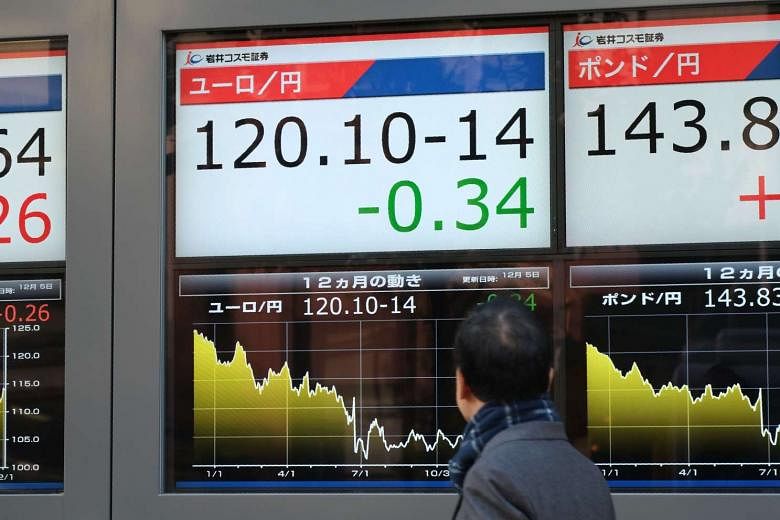ROME (Bloomberg) - The euro retreated with riskier assets, while bonds rose, amid concern the failure of Italy's referendum on constitutional reform will destabilise the country, emboldening anti-Europe and nationalist forces.
The common currency touched its weakest point in 20 months as Prime Minister Matteo Renzi conceded defeat and said he'll quit as results showed his bid to overhaul legislative decision-making in Italy had been voted down.
Stocks from Tokyo to Sydney declined as the surprise resignation of New Zealand's premier exacerbated pressure on the local currency. Government debt tracked a rebound in Treasuries from Friday, when mixed U.S. jobs data weighed on the dollar and stocks. Gold fluctuated, while oil fell with copper.
Renzi's concession so early on in the vote count coursed through Monday trading, with the referendum seen as a litmus test on the country's future within Europe. The prime minister staked his futures on a win for the reforms, which were aimed at simplifying the legislative process in a nation that's seen 63 governments since the end of World War II.
The plebiscite's defeat follows Britain's shock vote to exit the European Union and Donald Trump's unexpected victory in the US, racking up another win for the anti-establishment political movement that is resonating with voters in all corners of the world.
"Markets tend to react much faster to changes of environment now," said Yannick Naud, head of fixed income at Banque Audi (Suisse) SA in Geneva. "There is now a possibility of the euro reaching parity to the dollar. Maybe not right away, but it is a possibility if there is certainty regarding new elections." Currencies The euro weakened 1 percent to US$1.0559 as of 10:09 a.m. in Tokyo, paring a slump of as much as 1.5 percent from earlier in the session.
Meanwhile, the yen slipped 0.2 percent to 113.73 per US dollar after earlier jumping 0.6 percent.
The kiwi weakened 0.8 percent to 70.81 U.S. cents as Prime Minister John Key, a former currency trader, said he'll stand down and backed Finance Minister Bill English to succeed him.
The Bloomberg Dollar Spot Index, a gauge of the greenback against 10 major peers, jumped 0.5 percent following its first weekly retreat since Trump won the U.S. presidency. The greenback has climbed since the election on speculation Trump will stoke economic growth by ramping up fiscal stimulus.
U.S. employers added 178,000 workers to payrolls last month, after rising by a revised 142,000 people in October, and the jobless rate slid to a nine-year low. Hourly wages declined for the first time since the end of 2014, data out Friday showed.
Bonds Yields on Australian government debt due in a decade snapped a four-day climb, slipping by seven basis points, or 0.07 percentage point, to 2.79 percent.
Similar maturity New Zealand notes yielded 3.21 percent, down seven basis points as rates on Japanese bonds dropped by one basis point to 0.035 percent.
Ten-year Treasury yields fell another two basis points to 2.37 percent after shedding seven basis points on Friday.
The MSCI Asia Pacific Index declined 0.4 percent, with Japan's Topix index retreating 0.6 percent, Australia's S&P/ASX 200 Index down 0.7 percent, the Kospi losing 0.1 percent in Seoul and New Zealand's S&P/NZX 50 Index dropping 0.4 percent.
Futures on the S&P 500 Index decreased by 0.3 percent, with the underlying benchmark ended Friday up less than 0.1 percent after paring an advance of as much as 0.3 percent.
FTSE 100 Index futures dropped 0.6 percent.
Commodities West Texas Intermediate crude snapped a three-day surge, falling 0.9 percent to US$51.23 a barrel following its best week since 2011.
Copper for three-month delivery dropped 0.4 percent.
Gold swung between gains and losses, trading at US$1,175.63 an ounce after falling 0.5 percent last week, its fourth straight weekly loss.

